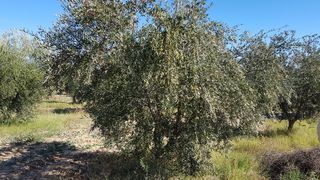Agricultural plains with prominent irrigation infrastructure are important for the regional and national economies in the Maghreb region. However, these territories and farmers are vulnerable to environmental and climatic hazards, linked to an "unsustainable" use of natural resources (conditions and means of access to water, soil degradation). It is worthy to initiate reflections on the conditions for a successful agroecological transition for this family-type agriculture, by identifying agricultural practices that have more ecological and resilient operations. Assuming that a strong potential for adaptation and innovation exists at the territorial level, the objective of this thesis is to identify, characterize and evaluate agricultural practices, with a particular focus on ways to improve input and resource use efficiencies at the crop level. Thus, the work will focus on a multi-criteria analysis of different irrigated cropping systems in the Kairouan plain, to assess their environmental sustainability. Located in Central Tunisia, the Kairouan plain is predominantly agricultural, with a wide variety of market gardening crops (potatoes, onions, beans, tomatoes, peppers, watermelons, melons, etc.), arboriculture (fruits with stone or pips) and cereals (wheat, barley, etc.). Its agriculture is mostly irrigated, the latter encouraged by both the agricultural administration and the farmers themselves, leading to high benefits but with high risks linked to the strong market fluctuations. However, practices that are less demanding in terms of chemical inputs or water resources – termed agroecological - have been observed, particularly for watermelon and pepper. Agroforestry practices, combining different tree species or intercropping (market gardening, cereals), are also common. This case-study site, which therefore lends itself well to work on the characterization of local agroecological practices in irrigated landscapes, will be the subject of this PhD. In an integrative and field approach, the aim will be to describe and evaluate different existing practices, identify their objectives and understand the biophysical mechanisms at work.
Keywords: Agroecology, multi-criteria analysis, environmental sustainability, irrigation, agricultural practices
 |
|
Photo: Drip Irrigation under olive trees, Kairouan plain Tunisia ©Koladé Akakpo |






